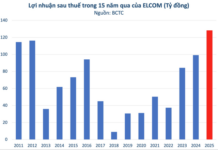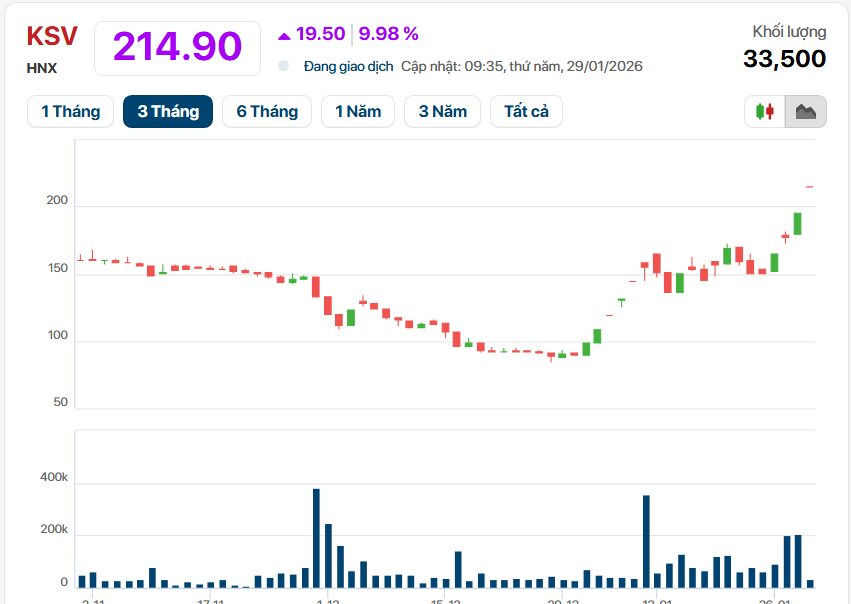The Law on State Capital Management and Investment in Enterprises will be discussed by the National Assembly at its 8th session. This is a new law intended to amend the 2014 Law. So, why is it necessary to enact this new law, and what are the new and different points compared to the old Law 69?
According to the Government’s report to the National Assembly before the 8th session on investment, management, and use of state capital in enterprises nationwide in 2023, there are currently 841 enterprises with state capital contribution, with a total state investment capital of 1.752 trillion VND. Pre-tax profit in 2023 decreased by 13% compared to the previous year.
Thus, the above figures show that the corporations, general companies, and enterprises with state capital are not yet commensurate with the resources they hold, and the investment efficiency is not as expected. One of the reasons is that enterprises have not been given the autonomy and accountability to operate under market mechanisms. Therefore, there is a need for policies to “untie” and help state-owned enterprises promote their advantages, overcome limitations, and seize development opportunities. Hence, it is necessary to enact a new law to promptly remove the “bottlenecks” and obstacles faced by enterprises with state capital.
The draft Law on State Capital Management and Investment in Enterprises is considered by experts and enterprises as a “breakthrough” compared to the previous Law 69. Accordingly, many new perspectives are characterized by “untie” for businesses. This aligns with the innovation in law-making and a decisive departure from the “if it can’t be controlled, then it should be prohibited” mindset, as emphasized by General Secretary To Lam.
The State as a Professional Investor

There is a need for policies to “untie” and help state-owned enterprises promote their advantages, overcome limitations, and seize development opportunities.
The first “breakthrough” is the idea that the State is merely a professional capital investor. While Law 69 stipulates that the State owns state-owned enterprises and can directly intervene in their operations and governance, the new draft law positions the State as just one of many investors, with rights, obligations, and responsibilities similar to other investors. It does not directly manage the legal entity of the enterprise, allowing enterprises to operate according to market principles.
Mr. Pham Phan Dung, former General Director of the National Reserve, stated: “The State will separate its roles; the management role belongs to the ministries and provincial People’s Committees. Meanwhile, the role of the Capital Management Committee is similar to investing in the stock market. When we put money into an investment, we trust the management of that enterprise.”
“The State acts as an equal investor, contributing capital to projects on par with other economic components. There is a clear separation between the function of state management, the function of state capital ownership, and the function of enterprise governance,” said Mr. Nguyen Ngoc Canh, Vice Chairman of the State Capital Management Committee at Enterprises.
More Decentralization in State Capital Management
The second “breakthrough” in the draft is increased decentralization and delegation of authority. Under the old Law 69, enterprises with state capital had to report everything. For instance, opening a new branch office or starting a new project, or even traveling abroad, required a document seeking the Prime Minister’s approval. This process was time-consuming and often resulted in missed business opportunities. The new draft law enhances decentralization and delegation of authority to enterprises, reducing the number of enterprises that need the Prime Minister’s approval to 21. This change is expected to make enterprises with state capital more agile and faster in their business decisions.
At the Petroleum Exploration and Exploitation Corporation, according to Law 69, whenever the Corporation made a decision regarding personnel changes or a new project, it had to seek approval from the Petroleum Group. The Group then had to seek the opinion of the Capital Management Committee. This two-level approval process took an average of six months. However, since the Petroleum Law took effect in mid-2023, the approval time for projects has been halved to three months, thanks to only requiring one level of approval.
Therefore, enterprises hope that the amendment of Law 69 will inherit the innovations of the Petroleum Law, further enhancing decentralization and delegation of authority to corporations and general companies, allowing them more autonomy in their investment decisions.
Mr. Hoang Xuan Duong, Deputy General Director of the Petroleum Exploration and Exploitation Corporation (PVEP), shared: “With faster approval, subsequent steps can also be accelerated. From approving bids to approving implementation steps, we have been able to shorten the project implementation time by about one year, bringing the State millions of USD in benefits on a project scale.”
The draft Law on State Capital Management and Investment in Enterprises has significantly “untied” and decentralized compared to specialized laws. The state capital representative agency only decides on the investment project orientation of enterprises with state capital investment of over 50% of their charter capital and those belonging to Group A as prescribed in the Law on Public Investment. The rest is left to the enterprises to decide and take responsibility.
With such a strong spirit of decentralization and delegation of authority, if the draft law is passed, it will create a legal corridor to remove obstacles and release resources for enterprises with state capital. When the State only acts as an investor and does not deeply intervene in the enterprises’ activities, it will help them quickly seize business opportunities.
“As PVN has many foreign investment activities, I hope that the new law will have regulations to decentralize and allow enterprises to make autonomous decisions on foreign investment projects to ensure that these procedures can be shortened and opportunities can be seized in the best possible way,” expressed Mr. Nguyen Van Mau, Member of the Members’ Council of the Vietnam Oil and Gas Group (PVN).
Mr. Dau Anh Tuan, Head of the VCCI Legal Department, said: “The market is different from month to month, week to week, and even day to day. Therefore, enterprises’ business decisions must be made quickly. Consequently, the decisions of the capital management agency and the State must keep up with business decisions. We hope that with the amendment of Law 69, the State will limit its ownership rights to be equal to those of other owners to mobilize social capital effectively.”
Currently, Vietnam has about 841 enterprises with state capital, contributing nearly 30% of the total taxes and other obligations to the State budget annually. With such enormous resources, if given the autonomy and flexibility of private enterprises, state-owned enterprises will become magnets for investment attraction, both domestic and foreign, and live up to their reputation as the “iron fists” of the economy.

The draft Law on State Capital Management and Investment in Enterprises is considered a “breakthrough” compared to the previous Law 69. Illustration.
Innovation in Enterprise Evaluation and Classification
The third “breakthrough” in the draft is the proposal of innovative solutions for evaluating efficiency and classifying enterprises. While the old Law 69 stipulated the classification and evaluation of enterprises based on four criteria: implementation of revenue and profit plans, debt payment ability, fulfillment of tasks assigned by the State, and compliance with general policies and laws. Enterprises had to meet all four criteria perfectly to be classified as A.
During the process of producing reports, VTV’s team of reporters was confided by some enterprises that these evaluation criteria were too strict and caused difficulties. For example, if an enterprise implemented ten projects, and nine of them were profitable, bringing in thousands of billion VND, but just one project incurred losses or a minor infraction, such as being reminded by the financial agency, it would still be classified as B, downgraded, or considered incomplete. This downgrade would naturally affect the enterprise’s reputation and the bonuses of its officials, employees, and workers.
To address this “bottleneck,” the new draft law proposes innovative solutions by changing the method of evaluating and classifying enterprises. Instead of relying solely on rigid criteria and evaluating each project, as before, the focus is now on evaluating the overall goals and results of the enterprise. Political tasks assigned to enterprises that are not for profit will also be excluded from the evaluation. Moreover, for joint-stock enterprises, only the representative is evaluated, not the enterprise itself, to avoid affecting enterprises listed on the stock exchange.
With these “breakthrough” points, the draft law is quite flexible and creates favorable conditions for enterprises. However, to operate effectively, it depends on the dynamism of each enterprise. The representative of the Ministry of Finance, the agency in charge of drafting the law, said that there must be ex-post inspection measures to ensure the effective use of state investment capital in enterprises.
Mr. Bui Tuan Minh, Director of the Enterprise Finance Department, Ministry of Finance, said: “Enterprises must also be ready to streamline their apparatus, dare to decide, dare to do, and dare to take responsibility to implement projects. With such enhanced decentralization, management agencies must strengthen management and ex-post inspection to promptly adjust and handle issues.”
The draft Law on State Capital Management and Investment in Enterprises will be discussed by the National Assembly at the group level on the morning of November 24. After ten years of implementing Law 69, enterprises now aspire to don a new, more spacious garment instead of the old, tight one, to be proactive in production and business and create a breakthrough for development, truly becoming the leading force of the economy in the coming time.
The Power of Policy: How the Right Mechanisms Can Multiply National Strength
In the 8th session, on the morning of November 23rd, the National Assembly delegates discussed the draft Law on State Capital Management and Investment in Enterprises and the draft Law on Digital Technology Industry. Prime Minister Pham Minh Chinh joined the discussions with the 8th group, comprising delegates from the provinces of Vinh Long, Dien Bien, Kon Tum, and the city of Can Tho.
“Long Thanh Airport Project’s Phase 1: A Timeline Update”
The National Assembly’s Economic Committee agreed on the necessity to adjust the investment policy for the Long Thanh International Airport project. They approved the adjustment of the investment schedule for the construction of Runway 3, moving it from Phase 3 to Phase 1. This decision aims to ensure the synchronized operation of Runway 3 with Phase 1, and also extended the deadline for the completion of Phase 1 to December 31, 2026.



















